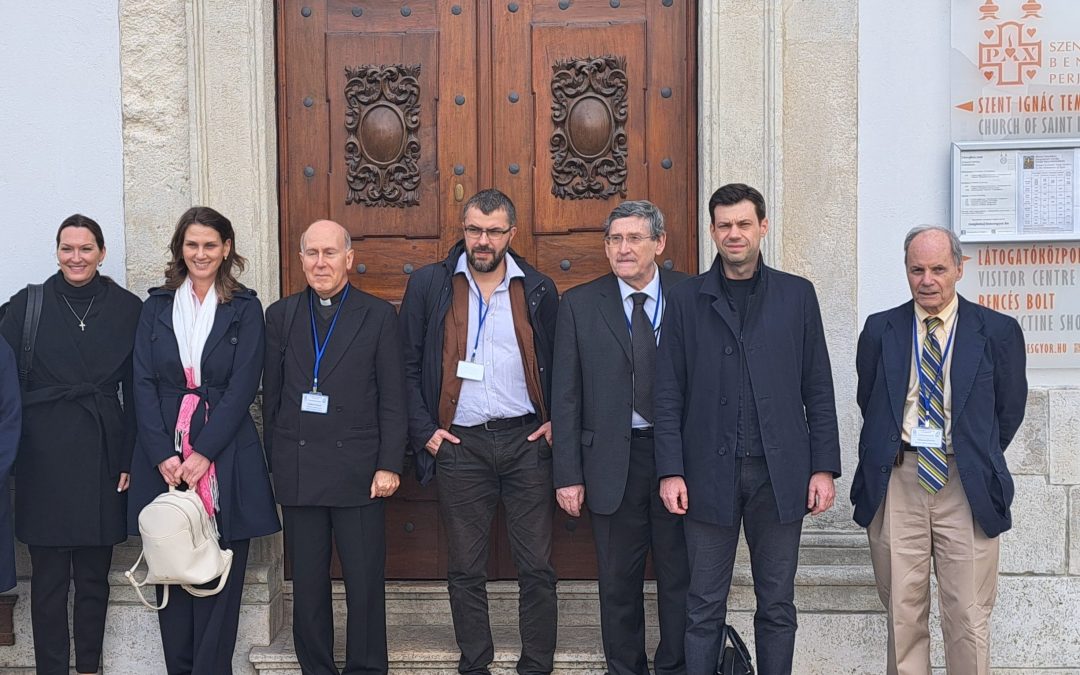The conference was organized by the Research Group on Religion and Science at Széchenyi University, our Society, and the Saint Maurus Benedictine Priory in honor of Fr. Stanley Jaki’s work on 4 April 2025 in Győr.
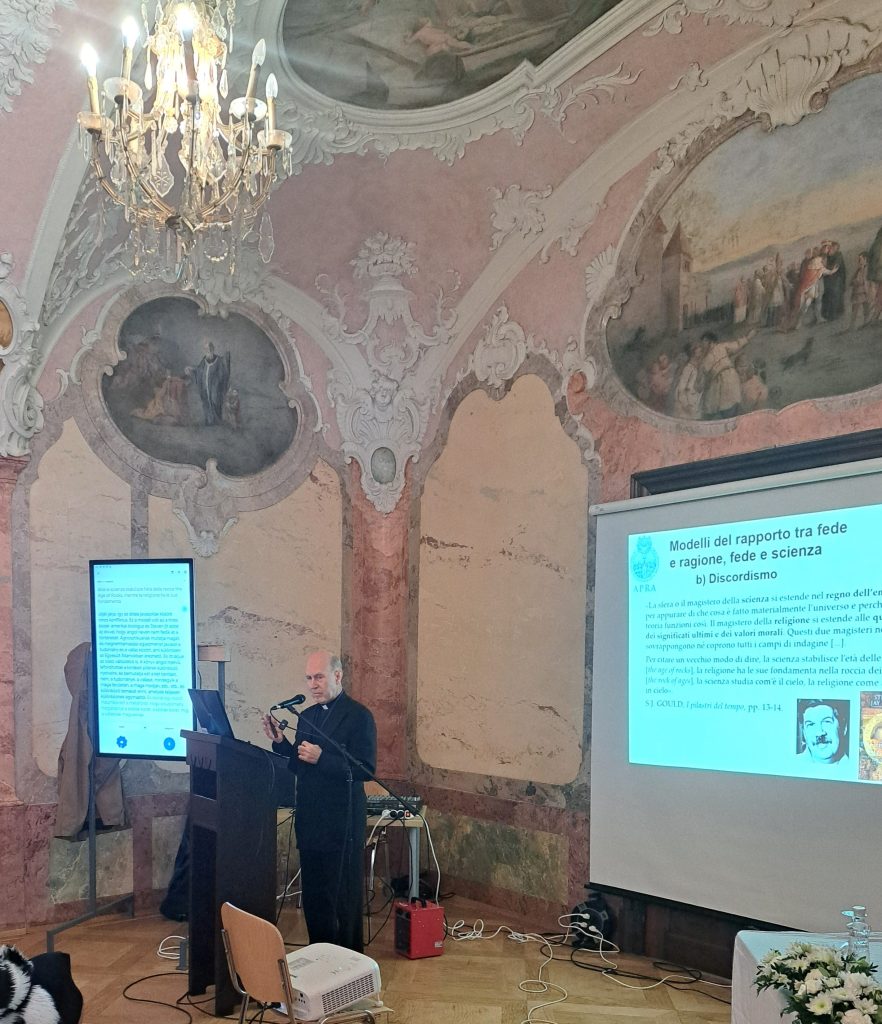
In the keynote address, prof. Rafael Pascual, L.C., professor of Philosophy at Rome’s Pontifical Athenaeum Regina Apostolorum, presented an insightful overview titled „Some Ways to Conceive the Relation Between Science and Religion.” His speech highlighted various models through which modern thinkers approach the longstanding dialogue between scientific progress and religious belief, emphasizing the complementary nature of the two.
Dr. Gábor Ambrus, theologian and research fellow at the Pontifical University of St. Thomas Aquinas (Angelicum, Rome), contributed a critical reflection on Christianity’s response to AI. Dr. Ambrus argued that traditional theological discussions are often too simplistic or disconnected from the realities posed by advanced technology. He suggested adopting a culturally engaged theological framework inspired by monastic spiritual practices—particularly lectio divina (spiritual reading)—to help Christians develop a contemplative, biblically-informed engagement with technology.
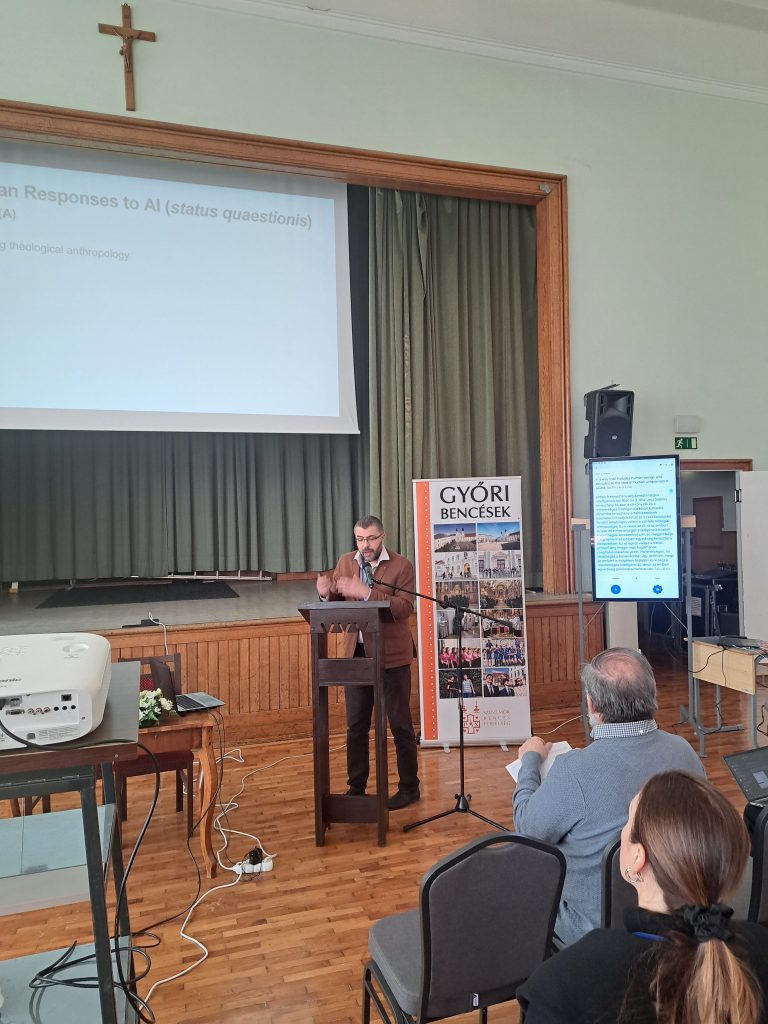
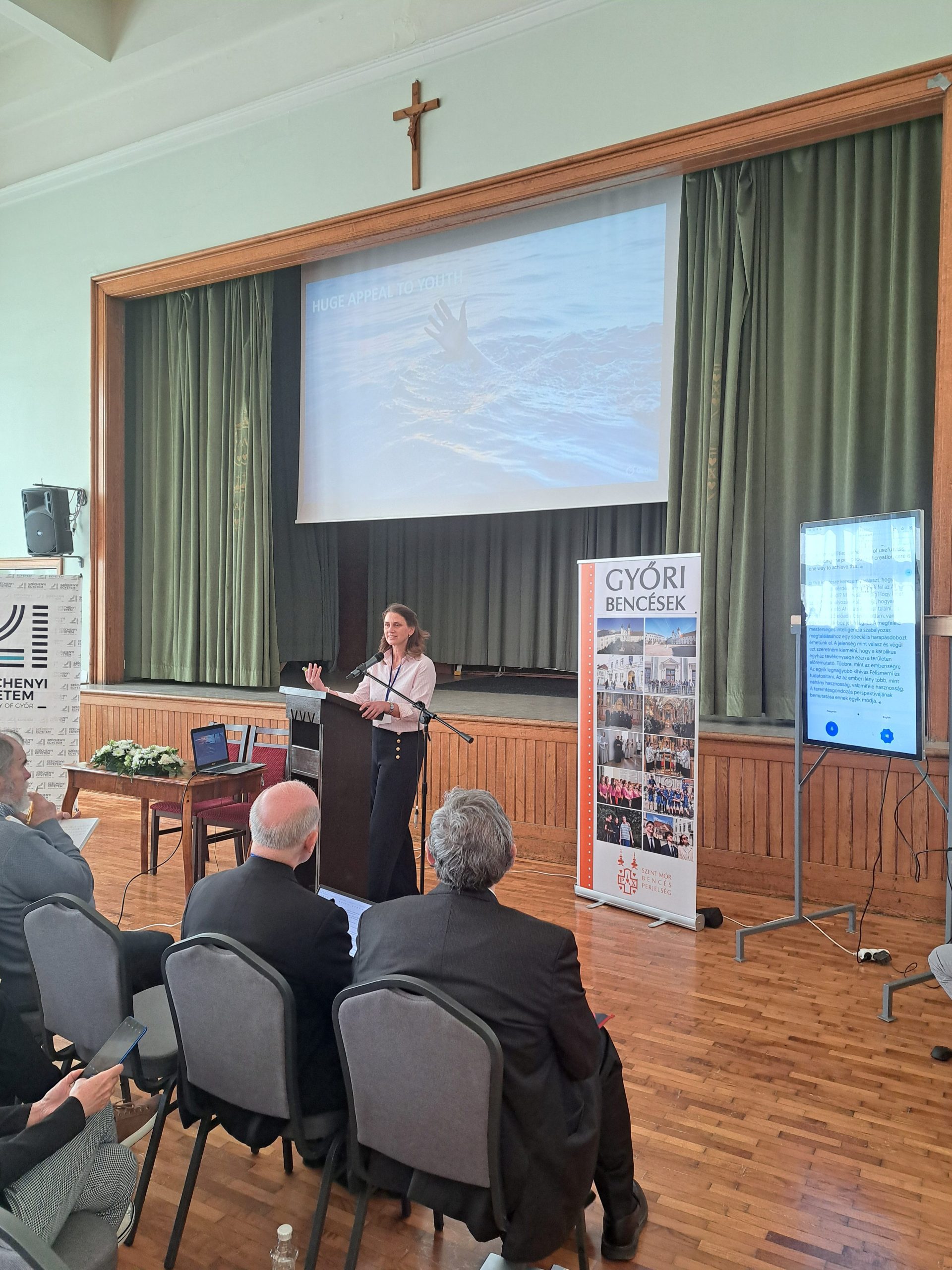
Highlighting ethical concerns surrounding AI, Dr. Ágnes Tahyné Kovács, Associate Professor at Pázmány Péter Catholic University, identified common elements across seven prominent AI ethical codes. She analyzed these guidelines against Catholic social teachings and recent statements from Pope Francis. Dr. Kovács emphasized societal expectations influencing AI legislation and how Catholic doctrine aligns with contemporary ethical frameworks.
Prof. Lucía Guerra Menéndez from CEU-San Pablo University underscored the enduring significance of free will within bioethics and broader societal ethics. Referencing both philosopher-scientist Arthur Holly Compton and Fr. Stanley Jaki, Prof. Menéndez argued that recognizing free will is vital to resisting relativistic trends and ideological manipulation. She echoed Jaki’s cautionary stance against pseudo-scientific arguments undermining objective morality.
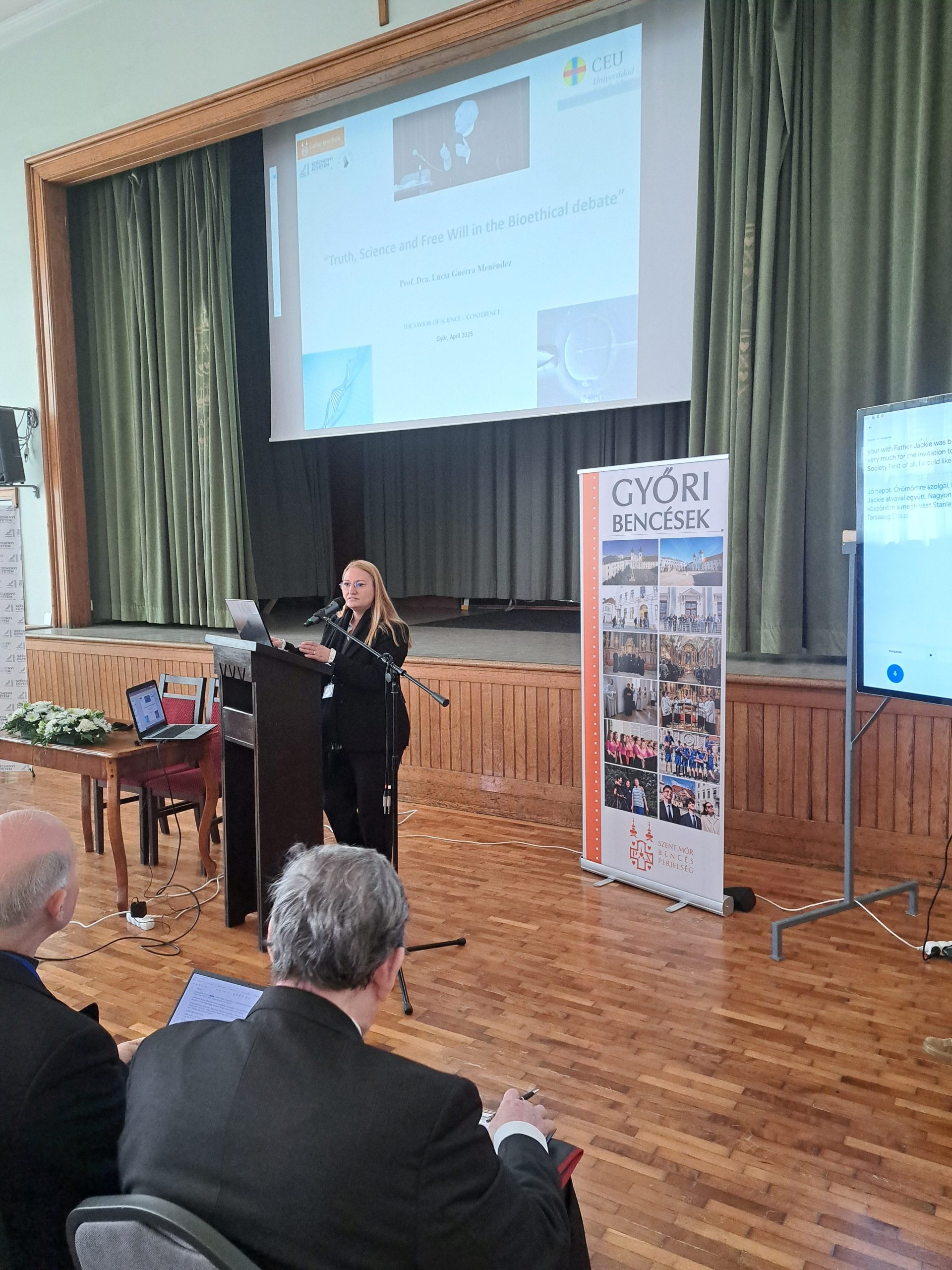
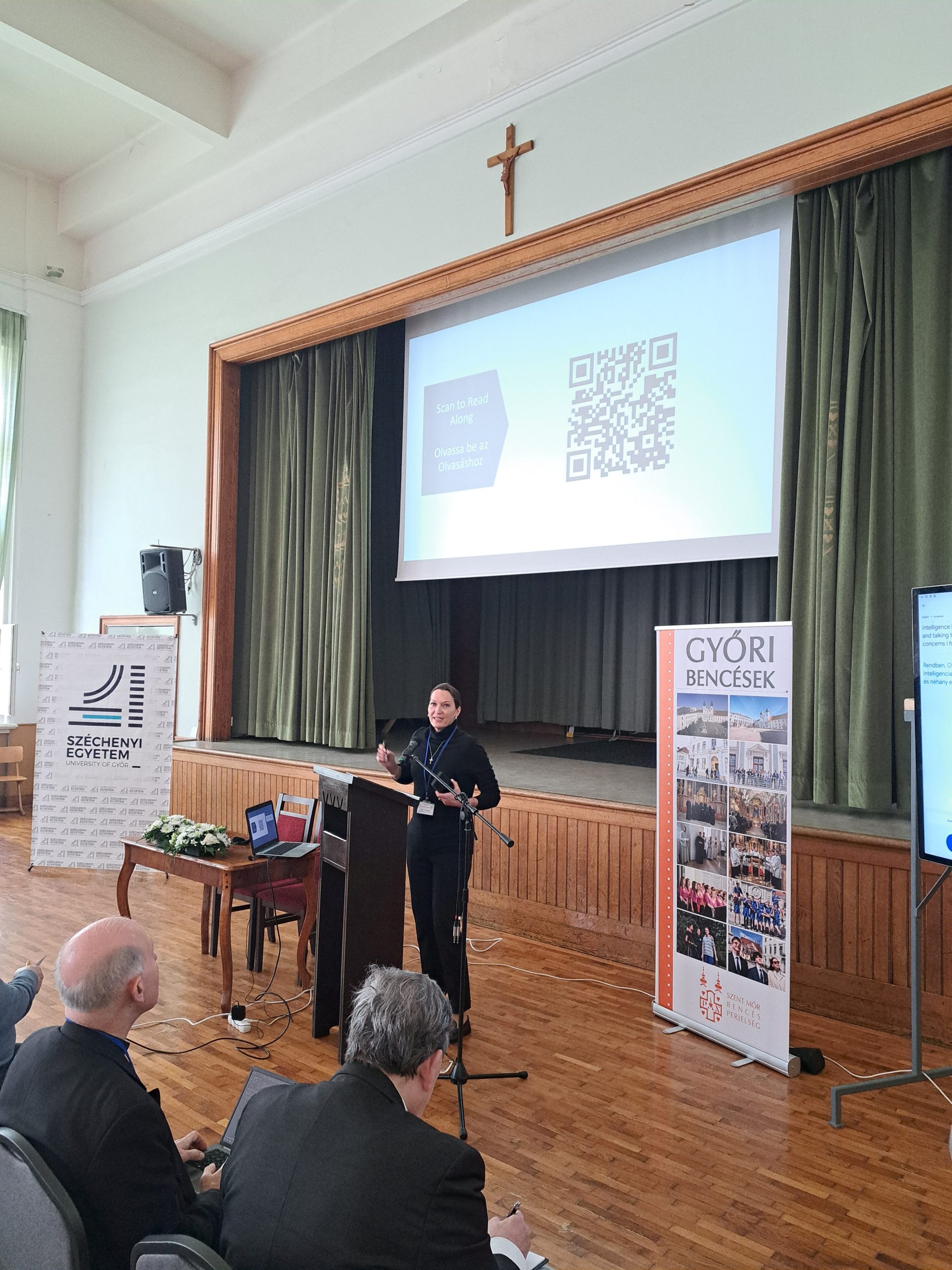
Prof. Stacy Trasancos, Adjunct Professor from Seton Hall University, revisited Fr. Stanley L. Jaki’s critical dialogue with biochemist Erwin Chargaff, who had expressed ethical concerns over reproductive technologies in the late 20th century. Trasancos updated the discussion by raising contemporary ethical dilemmas posed by organoid intelligence—laboratory-grown brain-like tissues derived from abandoned embryos. This new development pushes Chargaff’s and Jaki’s ethical concerns further into the realms of consciousness studies and biotechnological advancements.
Prof. Thomas Fowler, President of the Xavier Zubiri Foundation, warned against overstating AI’s capabilities. According to Prof. Fowler, misconceptions about AI arise from a misunderstanding of its fundamental nature. Echoing the philosophical insights of Stanley Jaki and Xavier Zubiri, Prof. Fowler clarified that AI lacks genuine human understanding and insight into reality, emphasizing that the true risk lies not in AI becoming sentient, but rather in its misuse within critical societal systems.
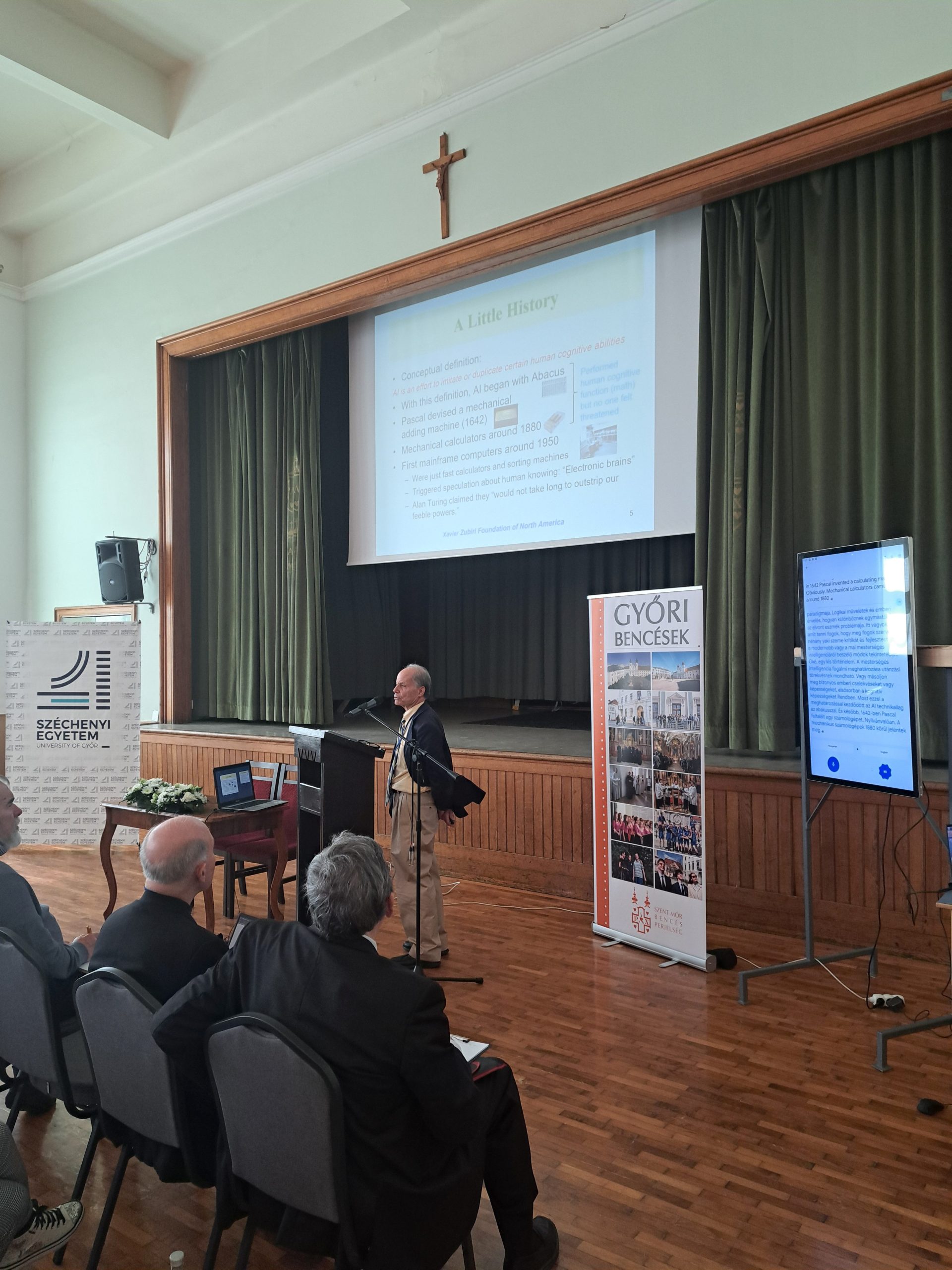
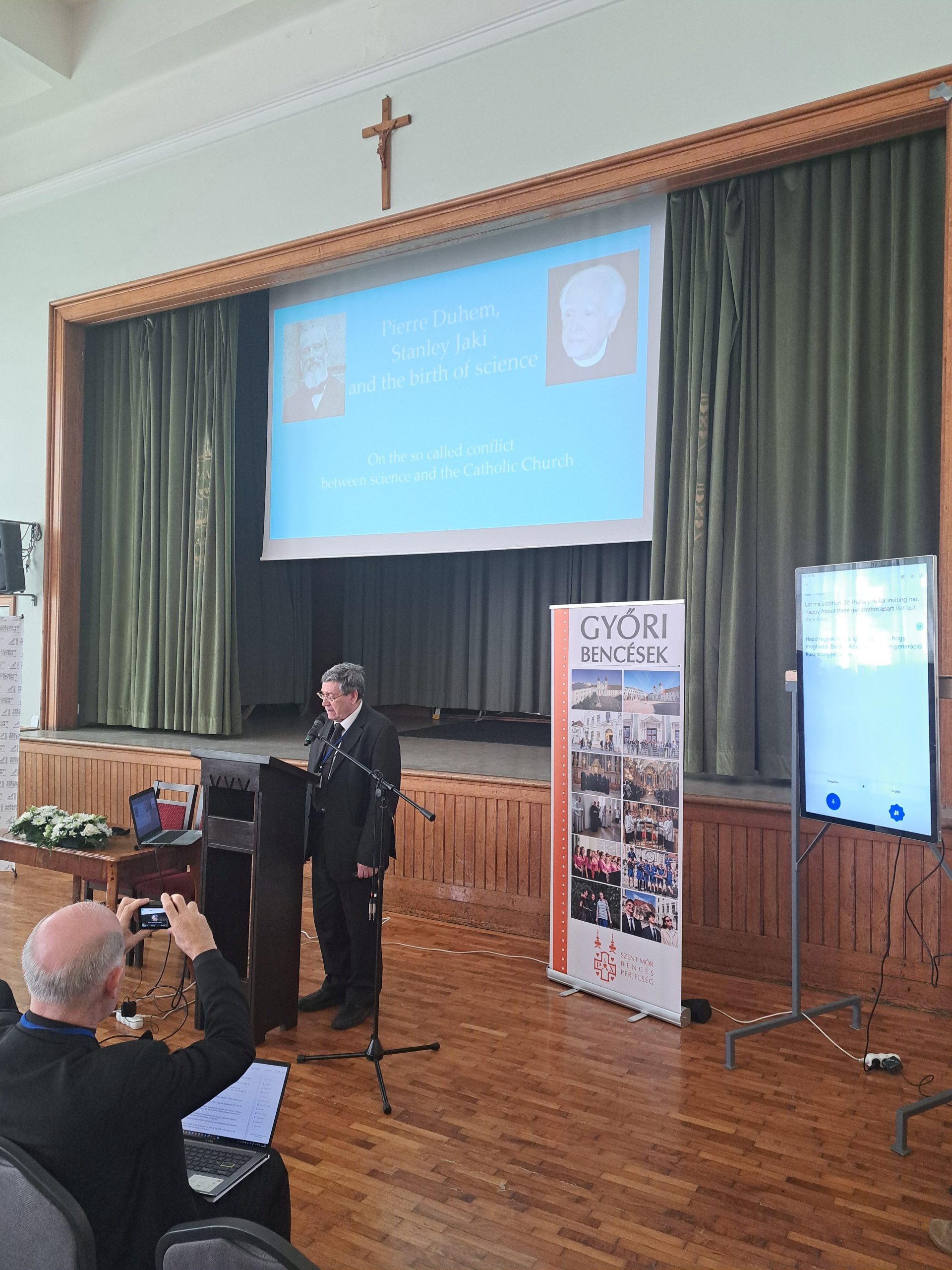
Antonio Colombo, editor and Italian translator of Stanley Jaki’s works, examined the influential historical relationship between scholars Pierre Duhem and Stanley Jaki. He emphasized their joint efforts to challenge the persistent myth of the Catholic Church’s opposition to scientific advancement, highlighting their contributions to the constructive dialogue between faith and reason.
More pictures and news about the conference are available here
